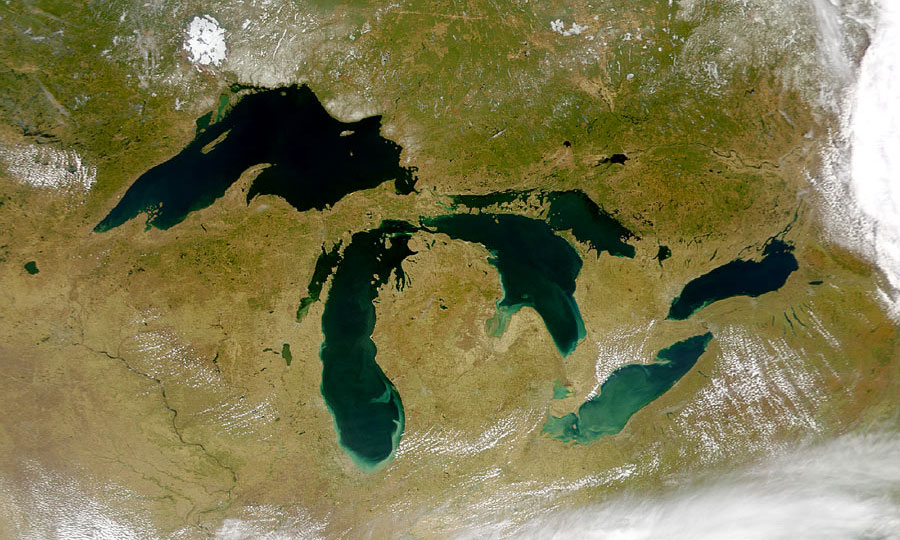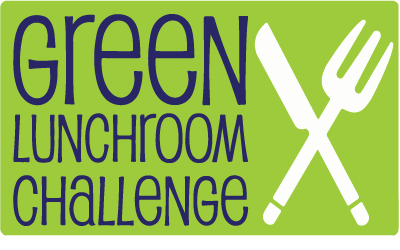Solutions-focused conversations about the next wave of research and discovery.
Wednesdays, 12:00 p.m. to 1:00 p.m. CST
IonE Seminar Room R380, Learning & Environmental Sciences Bldg., St. Paul
Free and open to the public; no registration required
Join us online via UMConnect
September 24 — Can We Build a More Resilient Food Distribution System?
Matteo Convertino, IonE Resident Fellow and Assistant Professor, School of Public Health; and Craig Hedberg, Professor, School of Public Health
Despite being a global concern, food safety is addressed in a systematic way only in some developed countries. We need an integrated ‘”system science” approach to managing the global food system that considers multiple needs and constraints, as well as an efficient system for transporting food and rapidly detecting food contamination and adulterations. Matteo Convertino and Craig Hedberg will describe a project that’s using computer modeling to predict and deal with food-borne disease outbreaks worldwide based on food supply chain structures and epidemiological data.
October 1 — How can the University of Minnesota assist the energy transition?
Hari Osofsky, IonE Resident Fellow, Law School Professor and Energy Transition Lab Faculty Director; and Ellen Anderson, Energy Transition Lab Executive Director
Our energy system is transitioning in ways that create critical challenges. Evolving approaches to sources of energy, electricity and transportation, energy infrastructure, energy efficiency, climate change, and environmental and energy justice affect every community and region and every sector of the economy. We need to remove barriers to needed change at local, state, regional, national, and international levels, and identify a holistic strategy for moving forward. Energy Transition Lab faculty director, IonE resident fellow, and Law School professor Hari Osofsky, and Energy Transition Lab executive director Ellen Anderson see Minnesota and beyond as a living laboratory for finding innovative solutions. They will explore how the lab will collaborate with business, government, NGO, community leaders, and university-based experts to make progress on these challenges.
October 8 — How Might the Twin Cities Help Catalyze Needed Global Urban Innovations?
Patrick Hamilton, Ione Resident Fellow and Director, Science Museum of Minnesota’s Global Change Initiatives; Anne Hunt, Environmental Policy Director, City of Saint Paul; Peter Frosch, Director of Strategic Partnerships, Greater MSP; and Mike Greco, Lecturer, Center for Urban and Regional Affairs, Humphrey School of Public Affairs
By 2050, more than 6 billion people will live in cities. The quality of life in these cities of the future — and, by extension, our planet — is being shaped by decisions we make today. Patrick Hamilton will engage panelists Anne Hunt, Peter Frosch, and Mike Greco in a lively discussion of how the Twin Cities — one of the healthiest, wealthiest, best educated, and most innovative, creative and connected urban centers in the world — might use its considerable academic, nonprofit and business acumen to shape initiatives that directly benefit its residents while also helping to advance creative urbanism everywhere.
October 15 — Should Society Put a Price Tag on Nature?
Steve Polasky, Ione Resident Fellow; Project Lead, Natural Capital Project; and Professor, College of Food, Agricultural and Natural Resource Sciences
Natural environments such as grasslands, forests and wetlands provide ecosystem services —benefits such as clean air and water and eye-pleasing landscapes. We value these amenities in the abstract, yet rarely figure them into a budget or balance sheet when developing a shopping mall or planting a cornfield. Steve Polasky will moderate a discussion about whether society could or should place a monetary value on nature — and if so, how to incorporate that value into decisions about resource management, conservation and environmental regulation.
October 22 — What Does a Sustainable Clean Water Future for Minnesota Look Like?
Bonnie Keeler, Lead Scientist, Natural Capital Project; Deb Swackhamer, Program Director, Water Resources Center; and John Linc Stine, Commissioner, Minnesota Pollution Control Agency
Minnesota has a reputation as a land of abundant, high-quality lakes and rivers. But is our water clean enough? Addressing surface water quality problems is expensive and not without trade-offs, such as lost industry, agricultural production and development. Bonnie Keeler, Deb Swackhamer and John Linc Stine will share their visions of a sustainable clean water future for Minnesota.
October 29 — What Is the Role of the Environment in This Year’s Minnesota Elections?
David Gillette, Special Correspondent, Twin Cities Public Television; Amy Koch, Small Business Owner and Former Minnesota Senate Majority Leader; and Mark Andrew, President, Greenmark
With all the statewide constitutional offices up for grabs — plus a federal senate seat — it’s a busy election year in Minnesota. Surveys show that while people care about the environment, they often don’t make it the top issue when voting. How important are environmental issues in this fall’s elections? How are environmental issues being framed? What impact might the election have on environmental policy in the state? And what can University of Minnesota faculty, staff and students do to help voters understand what’s at stake?
November 5 — How Can We Make the Most of the Agriculture’s 21st Century Transformation?
Nicholas Jordan, IonE Resident Fellow and Professor of Agronomy and Plant Genetics, College of Food, Agricultural and Natural Resource Sciences; and Carissa Schively Slotterback, Associate Professor, Humphrey School of Public Affairs
Agriculture is in the midst of a revolutionary transformation. Output is rapidly shifting from a few predominant crops and commodities to a wide array of new foods, feeds, bioproducts and biofuels. At the same time, emphasis is shifting from minimizing adverse impacts to capitalizing on the potential of agriculture to improve soil, water, biodiversity and climate. Nicholas Jordan and Carissa Schively Slotterback will describe emerging opportunities and explore how one initiative in southern Minnesota is bringing science, social science and humanities together to develop and test a process for helping rural communities make the most of the economic and environmental benefits of the new bioeconomy as it develops around them .
November 12 — How Can We Help Children Connect to the Natural World?
Cathy Jordan, Associate Professor, University of Minnesota Extension Children, Youth, and Family Consortium
These days, kids spend more time staring at a computer monitor or playing with electronic games than they do interacting with nature. Cathy Jordan will address questions such as: What effect does this have on children’s well-being and, ultimately, the well-being of our planet? What are the benefits of connecting children to nature? What can urban planners, landscape architects, educators and parents do to foster engagement between children and the natural world?
November 29 — Environmentalists and Corporations Make Strange Bedfellows . . . Or Do They?
Steve Polasky, Ione Resident Fellow; Project Lead, Natural Capital Project; and Professor, College Of Food, Agricultural and Natural Resource Sciences with [panelists to be named]
When we think of a group of environmentalists fighting to protect fragile habitat, we may imagine an angry mob outside the gates of a manufacturer, chanting and waving signs. Or circulating an online petition. Or maybe boycotting a product. But the times, they are a-changin.’ Modern-day environmentalists are taking seats in boardrooms and influencing business practices on a global scale. Steve Polasky and panelists will share insights, challenges and successes in this lively conversation about these 21st century partnerships.


